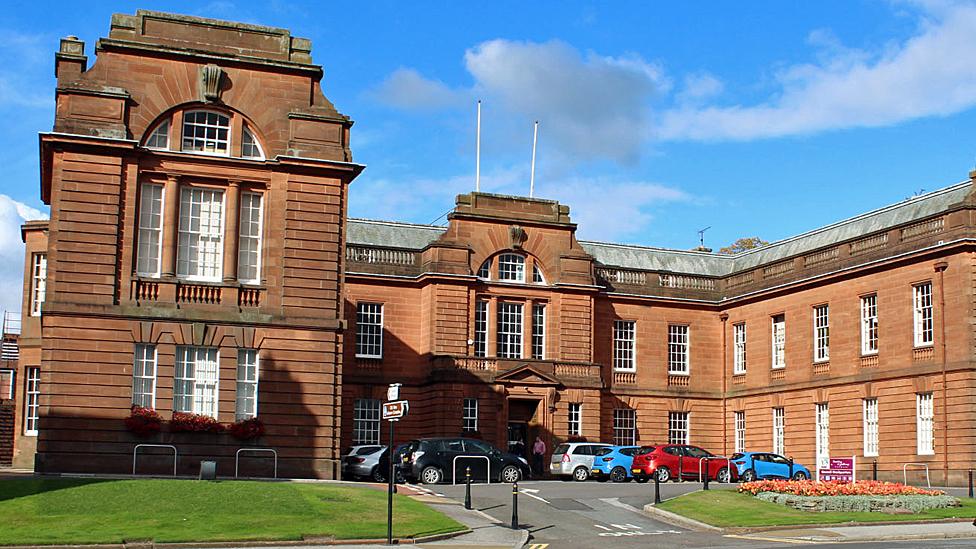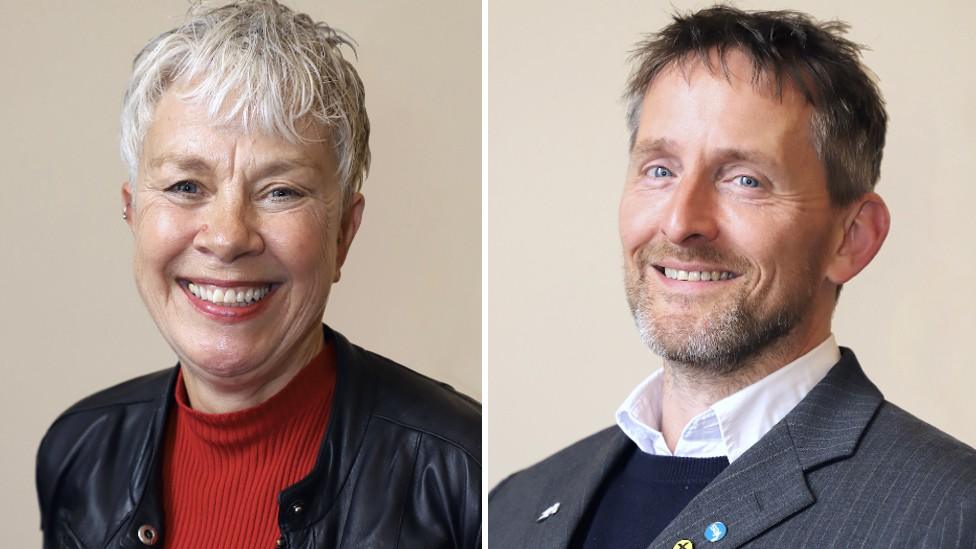The rise and fall of Dumfries and Galloway's cross-party coalition
- Published

A budget-setting meeting at the council saw the ruling coalition's proposals outvoted
They came together less than a year ago with a desire to do things a little differently.
After last May's council elections an alliance was formed between the SNP, Labour, Lib Dems and independents to run Dumfries and Galloway Council.
Its aim was to serve the region while working together in the name of "mutual trust and understanding".
In the end, it held together for about 280 days before it completely fell apart in the budget-setting process.
In truth, it faced a difficult task almost from the outset.

The previous council term had seen a Labour-SNP ruling coalition but this one relied on the support of other groups to achieve an outright majority and freeze out the Conservatives who had won most seats.
"This will be a new administration with a new outlook, but shared ambitions and goals for the advantage of Dumfries and Galloway and we are very much looking forward to working together," said a statement on behalf of the new alliance.
"Despite our political differences, we will work jointly on what really matters to the people in all our communities across our region."
However, the leader of the Conservatives, Gail MacGregor, forecast a "very bumpy road ahead" - which proved to be an accurate prediction.
A cross-party panel was agreed to help run the authority in June last year to bring the only opposition party into the fold.

Labour's Linda Dorward and the SNP's Stephen Thompson were originally co-leaders of the council coalition
That "inclusive" all-party approach was intended to run for a year before it was reviewed but it lasted much less than that.
The writing was on the wall for the coalition by early February this year when a reshuffle was agreed which saw Labour's Linda Dorward step back from her leadership role.
The group cited "clear political and policy differences" as the reason for the split.
It came after Scottish Labour leader Anas Sarwar reiterated his party's policy of having no formal coalitions with either the SNP or Conservatives.
That left an SNP-Independent alliance in charge but it no longer had sufficient numbers to ensure an outright majority on the 43-member council.
Labour pledged to work with other parties on common policy issues but submitted its own budget plans which led to three competing sets of financial proposals.
It then only took a couple of defections from the independent ranks to seal the administration's fate.
Outright control
A Conservative budget was voted through which left leader Stephen Thompson with no option but to step down.
It leaves the running of the authority up in the air with few remaining combinations possible to ensure outright control.
The Conservatives have most councillors with 17, followed by the SNP's 11, eight for Labour, five independents, one Lib Dem and one non-aligned.
Talks will need to take place to establish the way forward with the possibility of a minority administration looking highly likely.
Any dreams of doing politics "differently", however, look like they will have to be shelved for some time to come.
Related topics
- Published1 March 2023
